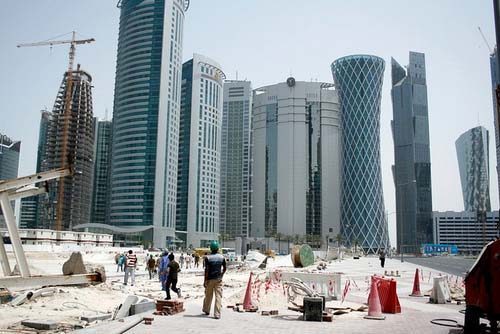
Eighty two percent of nationals believe that Qatar is facing a “demographic problem” due to a rapid influx of expats, according to a new report released by the Permanent Population Committee (PPC), as part of its annual report.
Based on its interviews with an unspecified number of locals, “Population Awareness amongst Qatari society” identified two areas of concern – that expatriates vastly outnumber Qatari nationals in society, and that they are in direct competition with nationals for jobs.
The report’s authors note that younger respondents were more likely to highlight these negative aspects of immigration, suggesting that Qatar’s younger generation is struggling more with the country’s expansion than its older counterparts.
Also of note in the report: the impact immigration has had on Doha’s urban sprawl; the reasons why Qatari population growth may be slowing down; and the country’s gender imbalance.
Male/female imbalance
Statistics in the report highlight the male/female ratio in Qatar, with the tally currently running at 308 males to every 100 females.
The figures show that although expats comprise 92 precent of married people in Qatar, the majority of their spouses do not live here. This means that almost two-thirds of the male population aged 15 years and up are classified as “bachelors,” reports the Gulf Times.
The report also focuses on issues limiting the growth of the Qatari population, including a preference for delaying marriage and for smaller families, rising Qatari divorce rates, delays in the provision of allocated land to newly married Qatari couples, and the high costs of dowries and wedding expenses.
Urban density
Another challenge facing Qatar due to its rapidly growing population is the strain put on Doha’s infrastructure, the report states.
It’s a tight squeeze: nearly 74 percent of Qatar’s population lives in Doha and Al Rayyan, according to the Qatar Statistics Authority, and there are 3,136 people per sq km in Doha, compared to eight per sq km in Al-Shamal. The study suggests that incentivizing people to live out of town could be the answer:
“It is to be noted that more than two thirds of respondents expressed their readiness to live outside Doha if they were granted free housings,” says the report. “This indicates the possibility for a new approach in solving the problem of population concentration in Doha, via the role of the government ensuring housing acquirement outside Doha, either for free or by encouraging prices.”
The study was carried out by the PPC’s Technical Bureau, via questionnaires which were sent by e-mail to government agencies and community organizations.
The Permanent Population Committee describes its mission on its website as “realizing the aptness of population requirements to sustainable development.”
Thoughts?
Credit: Photo by Bob Ramsak / piran café







